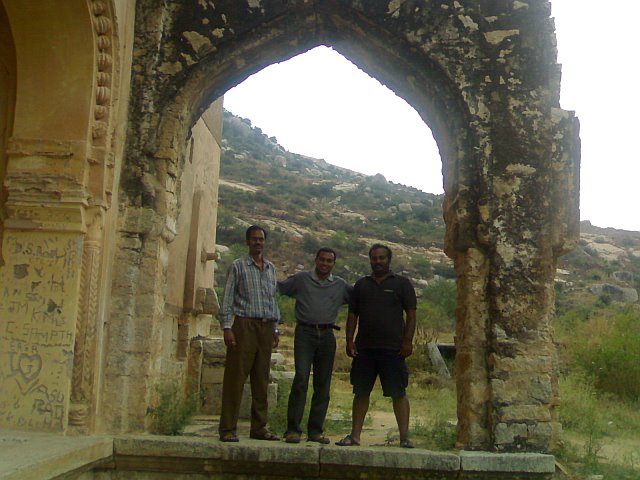Prasanna Venkateswara Swamy Temple, Appalayagunta Village
 Location: Appalayagunta Village
Location: Appalayagunta Village
Timings: 5:45 AM to 8:00 PM
Distance: 14 kms from Tirupati RTC Bus stand
Address:
Sri Prasanna Venkateswara Swamy Temple,
Appalayagunta Village, Vadamalapeta Mandal,
Chittoor (Dst.), Andhra Pradesh, India
Daily Sevas:
Name of the Seva | Timings |
Suprabatham | 5:45 AM to 6:15 AM |
Thomalaseva | 6:45 AM to 7:30 AM |
Archana | 8:00 AM to 10:30 AM |
Sarvadarshanam | 6:15 AM to 6:45 AM 11:00 AM to 5:30 PM 6:00 PM to 7:30 PM |
Night Bell | 5:30 PM to 6:00 PM |
Break ( Sudhi) | 7:30 PM to 7:45 PM |
Ekantha Seva | 7:45 PM to 8:00 PM |
Weekly Sevas:
| Day | Name of the Seva | Timings |
| Friday | Abhishekam | 7:00 AM TO 8:00 AM 8:00 AM TO 8:30 AM |
| Saturday | Unjala Seva | 5:30 AM TO 6:30 AM |
Monthly Sevas:
| Day | Name of the Seva | Timings |
| Sravana Nakshatram (Every Month) | Kalyanotsavam | 11:00 AM to 12.30 PM |
Prasanna Venkateswara Swamy Temple, Appalayagunta Village
The Prasanna Venkateswara Swamy temple is located at a distance of about 14 KM's, from the temple town Tirupati. This makes the temple adequately separated from the main temple town, but still easily reachable through private or public travels. It stands apart from the other entire temple in the sense, at which it depicts the Lord Venkateswara Swamy in the 'Abhaya Hasta Posture’, which is considered the ultimate blessing posture. The Lord's blissful posture is pleasant and rewarding for a devotee who wants to divulge deep into the Swami's realms.
Significance of Prasanna Venkateswara Swamy Temple
This is the place where the Lord Venkateswara Swamy graced the conglomeration of Sri Siddeshwara and other sages on the occasion of his marriage. As the temple was the place for the Lord's union with his consort Sri Padmavathi Ammavaru, here he is considered the most pleasant and granting. The temple has tremendous powers at liberating one from dosha's concerned with physical, psychological and career misfortunes. The grandiose Vayu Bhagavan's idol located in the temple is also a powerful source, which liberates one from various chronic illnesses of kalyuga.
Special occasions at Sri Prasanna Venkateswara Swamy Temple
The Friday Abhishekam is one of the most important significant occasions at the Temple.
The most important festival in the temple is Srivari Annual Bramhostavam which is being celebrated in the month of Jyesta (May/June) for a period of 10 days.
The other annual festivals/rituals are Ugadi, Rathasaptami, Depavali, AnivaraAsthanam and Vaikunta Ekadasi, which are celebrated once in a year in a princely manner.
Another annual festival's occurring at the temple are Ugadi, Rathasaptami, Depavali, AnivaraAsthanam and VaikuntaEkadasi festivals.
As the name indicates the 'Kalyanotsavam' this is the occasion when the Lord along with his consorts Goddess Sri Padmavathi Devi and Sri Goda Devi brings great celebration and delight. This is an excellent preparatory to-be-married person to advance for a fruitful relationship. This also removes any hardships that you could be facing in your existing married life.
Legend/Purana of the Prasanna Venkateswara Swamy Temple
After the much chronicled marriage of Lord Venkateswara to Sri Padmavathi Ammavaru, the Swami bestowed his divine blessings on the congregation of Sri Siddeshwara and other sages. Those sages on the merit of their holy lives were honored by lord's blessings on that divine day. It is also a belief that Lord Venkateswara had rested here during his voyage returning to Tirumala.
Another specialty of this temple is the enduring form of Lord Perumal, devoted to the oneness of Shiva-Vishnu worship. Hence all the special occasions related to Shiva, is also observed at great devotion.

























